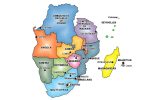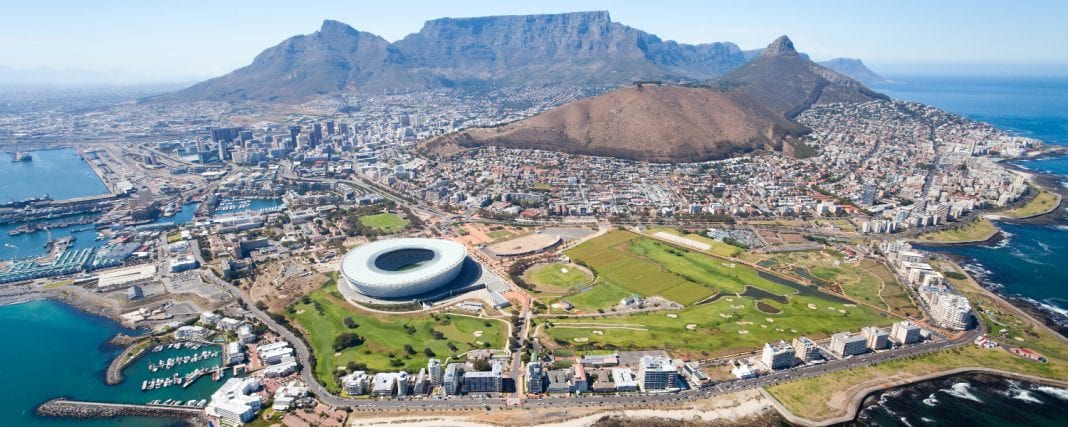Doctors Richard Leakey and Paula Kahumbu, both acknowledged to be Kenya’s leading conservation campaigners, held a media briefing earlier today at the Nairobi Serena Hotel to rally support for immediate action to stem the rising tide of rhino and elephant killings in the country.
From onsite reports it is understood that the two did not mince any words and in particular today’s patriarch of conservation in Kenya, Dr. Richard Leakey, quoted President Kenyatta in his opening salvo:
My fellow Kenyans, poaching and the destruction of our environment has no future in this country.
These were the worlds of President Uhuru Kenyatta at his inauguration almost exactly one year ago. Today in the year of the 50th anniversary of Kenyan independence, I am asking the president to put his words into action and declare a national disaster. I ask him to invoke emergency measures to crack down on the poachers and to declare elephants and rhinos National Treasures under protection of the state. In 1989, President Daniel Arap Moi took such extraordinary measures and wildlife poaching was curbed within 6 months. I am certain that this can be achieved again.
Elephants and rhinos declining in Kenya
Though KWS are not making information public, already this year we have lost at least 14 rhinos, more than in the whole of last year. Rhinos have been gunned down in our national parks, often in broad daylight and from sites close to ranger posts. Rhinos have also been lost from heavily fortified private conservancies that were believed impregnable. KWS [Kenya Wildlife Service] estimates the population of Kenyan rhinos at more than 1,000 of which just over 50% are in the National Parks. However, independent scientists doubt this figure and question the data – 38 rhinos that have not been seen for more than 3 years are still in the parks are still counted in the total. An independent audit of rhinos is conducted in all conservancies but not parks.
KWS report that fewer than 400 elephants are killed annually across the country. The results of a KWS census last month reveal that the elephant population in the Tsavo Ecosystem alone has fallen by 1,500 over 4 years. The census found 800 elephant carcasses.
Newspaper coverage and conservationists in the field also report that elephant are being shot and killed in Tsavo, Masai Mara, and Amboseli and other parks by poachers armed with automatic weapons. Many others are shot with poison arrows, causing unimaginable pain followed by slow death.
Kenya is the world’s hub for ivory smuggling
The latest Interpol report reveals that Kenya is now no. 1 in the world for ivory smuggling. The port of Mombasa serves as a staging post for ivory from Tanzania and many other countries. More than 13 tons of ivory were seized in Kenya last year and we can only speculate at the quantities that passed through undetected.
A study of trials in Kenya reveal that fewer than 4% of all convicted poachers are ever jailed. Interpol reveal that despite many ivory seizures in Kenya, no dealers have ever been arrested and prosecuted in court. A major rhino horn smugglers caught at JKIA [Jomo Kenyatta International Airport] was released. A Chinese ivory dealer was sent back to China. If a Kenyan threatened a Chinese Panda bear, he or she would face life imprisonment [and if a Kenyan would poach a Panda he or she would be sentenced to death in China adds this correspondent to put things into proper perspective].
Current measures are not enough
Despite our best efforts, the new law, the creation of an elite force in KWS, the promises of the Judiciary and DPP, and the commitment stated by the President, our elephants and rhinos are being massacred across the nation.
Tough new laws that mean convicted poachers and traffickers can be given life sentences, have not resulted in a single offender jailed without the option of a fine. In a recent case a Chinese man was arrested in Riverside Drive where he was manufacturing ivory carvings and sending them out of Kenya through Chinese mules who are being sent to Kenya as “tourists.” He was sent back to China without ever going to a Kenyan court. Last week the court acquitted Chinese national, Ou Kai Ming, even though he had been caught red-handed by customs officials at JKIA.
On the ground poachers have a free rein in many places. KWS staff who attempt to do their job are under increasing threat of violence and at least 8 KWS rangers have lost their lives to poachers in recent years. Managers who allow poaching to happen on their watch are simply moved to other locations, instead of being held to account for their dereliction of duty.
Emergency provisions under status as National Disaster
The failure of leadership and resources at KWS is compounded by the failure of the state to recognize that this is not just a wildlife crime. The president can no longer ignore the fact that these criminals belong to international crime rings that pose a major threat to the economy and national security. In 1989 President Moi recognized that the country was facing a national crisis and acted presidentially to stop it.
I am calling on the president of the Republic of Kenya to address the problem because our national security agencies are not working together to combat this threat to national security.
I am sure that the Ministry, NIS [National Intelligence Service], CID [Criminal Investigation Department], KWS all know who the top dealers and financiers of this bloody business are. They number fewer than 50 people, some of whom have been exposed in the media, but not one has been arrested to date.
In responding to the threat of piracy Kenya’s performance was exemplary. This is the kind of coordinated, fully committed response we need to the poaching crisis.
The voice and political will of our president are most critically needed if we are to win this war. The Kenyan public, corporations and our international partners will all respond favorably when decisive action is taken. The president cannot afford to leave a legacy for future generations of Kenyans that does not include elephant and rhinos.
Richard Leakey, March 19, 2014






















